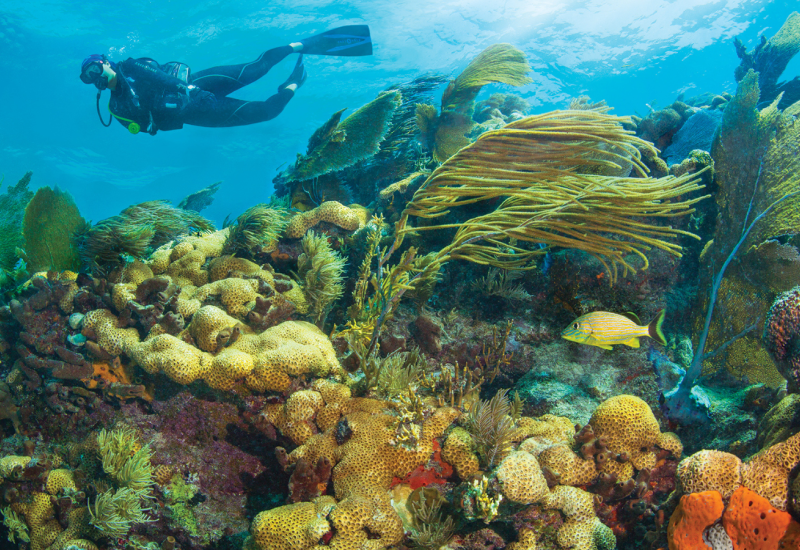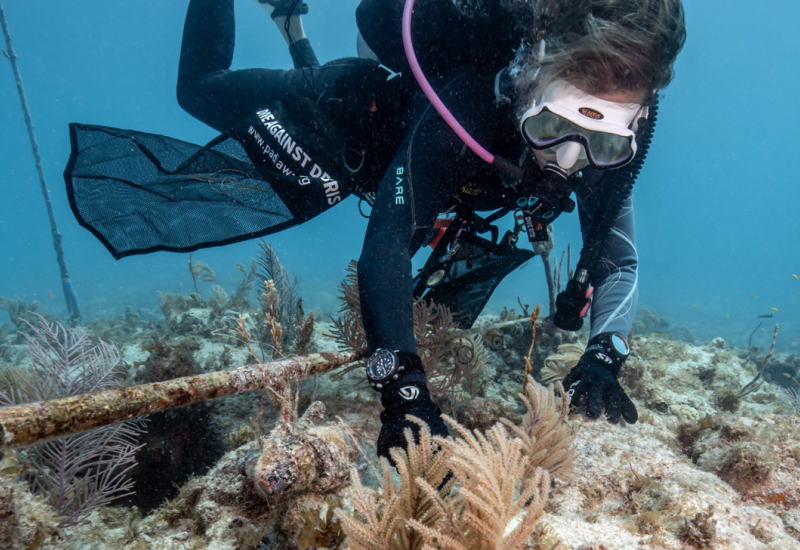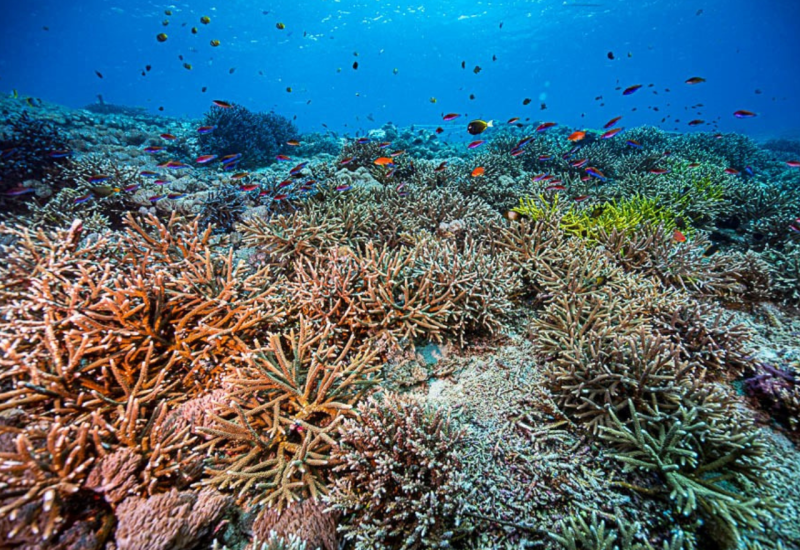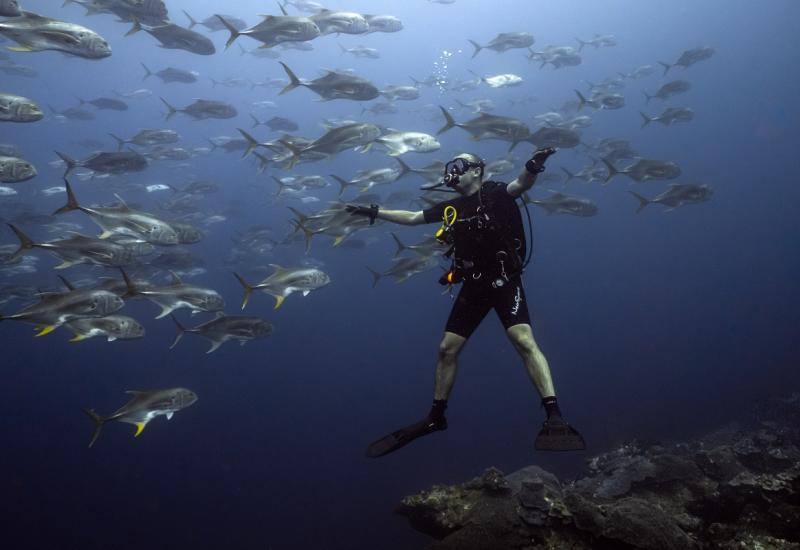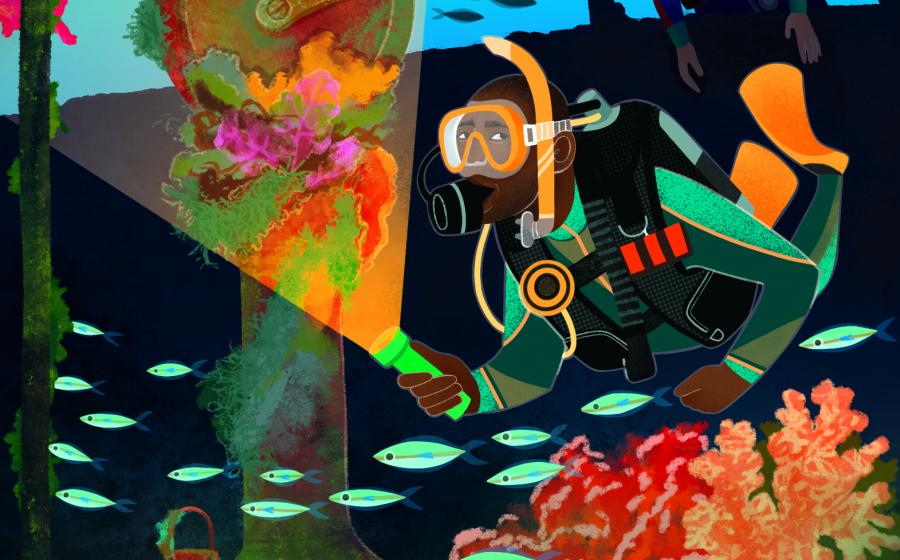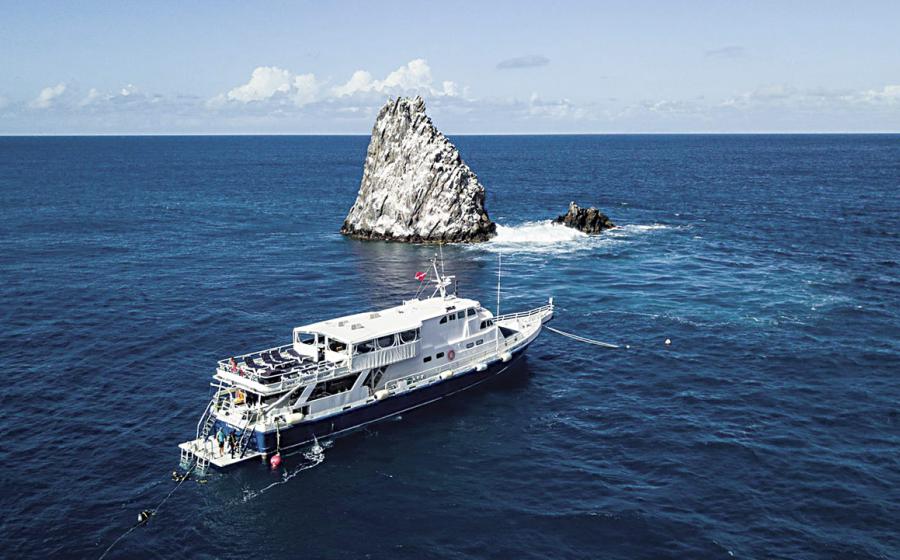Conservation Spotlight: Coral Reef Alliance
MISSION: “Saving the world’s coral reefs.”
HQ: Oakland, California
YEAR STARTED: 1994
CONNECT: Instagram | Facebook | Twitter
PROJECT: With a core belief that the people who most rely on reefs are the ones who are best positioned to be stewards of them, Coral Reef Alliance (CORAL) works to empower local communities to protect their ocean ecosystems.
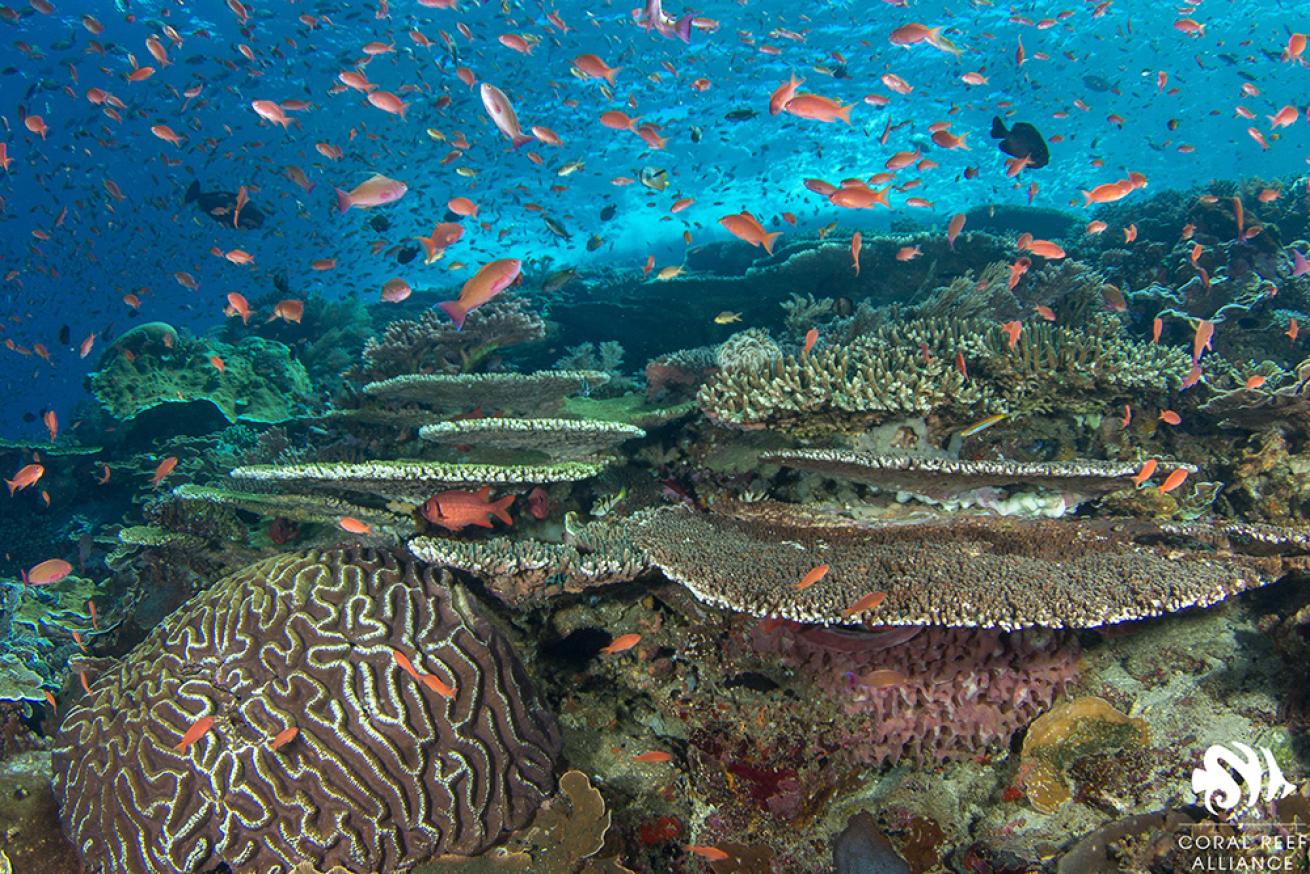
Courtesy Coral Reef Alliance/Michael WebsterCORAL runs programs in four areas — Fiji, Hawaii, Indonesia and the Mesoamerican Region.
“Our focus is on the future of coral reefs and how we get from here to there,” says Michael Webster, executive director of CORAL. “The reality is that, for coral reefs to continue to exist, and for people and wildlife to continue to benefit from them, coral reefs need to adapt — and they need to adapt to a rapidly changing world.”
CORAL has found that things like overfishing and pollution undermine the ability of corals to adapt to environmental changes, so their main program focuses include mitigating these factors through working with MPAs and marine reserves, local governments, and communities.
Their community-level programs include enforcing fishing regulations, installing moorings to ensure reefs aren’t damaged by anchors, and addressing wastewater pollution by creating treatment facilities and restoring watersheds with reef-friendly landscapes.
“Our role in any of those cases is to help advise and guide the community — we’re not decision makers in these places,” Webster says. “Our job is to find a way that the community can meet their interests and have the coral reefs benefit at the same time. When those two things can come together, we’ve got a lot to work with.”
CORAL runs programs in four areas — Fiji, Hawaii, Indonesia and the Mesoamerican Region — which they’ve identified as a collection of important reef areas with diverse corals and issues.
“We believe that if we can find solutions that can work in the Mesoamerican Region and also work in Hawaii, that’s how we’re going to find solutions that can work all around the world,” Webster says.
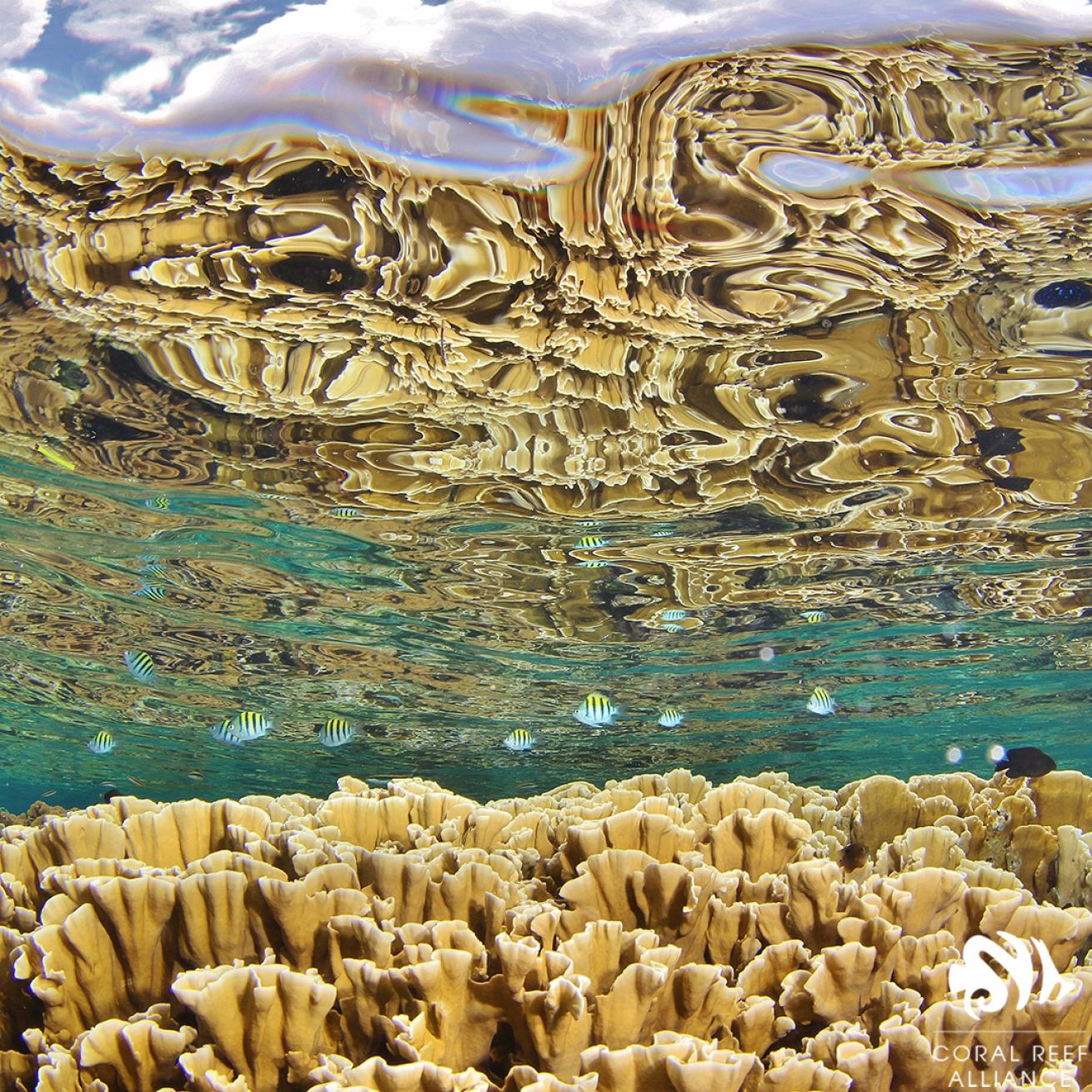
Courtesy Coral Reef Alliance/Michael WebsterCORAL's community-level programs include enforcing fishing regulations, installing moorings to ensure reefs aren’t damaged by anchors, and addressing wastewater pollution by creating treatment facilities and restoring watersheds with reef-friendly landscapes.
In parallel to their community-level efforts, CORAL conducts scientific work, asking the scientific community to help them figure out what it’s going to take for reefs to adapt to climate change and how local efforts can help.
“We’re starting to publish a series of scientific papers that layout large-scale solutions for coral reefs that think of community-level projects as really important components, but that fit together in a broader solution that looks at coral conservation across whole regions of reefs,” Webster says.
The goal is that these papers lay out a scalable blueprint for adaptation at the regional level, which can lead to the strengthening of reefs worldwide.
GET INVOLVED
1. Take Action in Your Own Life
Help Coral Reef Alliance carry out their mission every day by being more mindful of your impact.
“At the individual scale, it’s really about how your actions affect change in the world more broadly,” Webster says. Two main things people can do, he says, think about your interaction with reefs and your contribution to the climate crisis (especially your carbon footprint).
“The biggest problem for coral reefs going forward is how fast the climate is changing, Webster says. “We’re all contributing to climate change through our own actions. If there are ways we can reduce that on an individual basis or as a voter or as an informed citizen, that’s one of the most direct things people can do in their own life.”
Even if you’re miles and miles away from any body of water, your decisions every day make an impact on the ocean. CORAL suggests becoming an advocate for coral reefs by keeping up with science, laws and programs around coral reefs, and contacting your elected officials to urge for conservation action. Also, being a smart consumer of seafood and material goods, making sure your choices are eco-friendly and using your purchasing power to help support sustainable operations can make a big impact.
Follow best practices for sustainable tourism and interaction with the marine environment during activities like diving, whale watching and snorkeling. CORAL has downloadable resources to make this as easy as possible to follow and to share with fellow travelers.
2. Invest in Solutions
“One of the most important things people can do is invest in solutions for coral reefs,” Webster says. “Because so much of what’s happening is happening at this local scale, anything you can do to help support the people who are making these decisions to protect those resources is going to go a long way.”
There are a few different ways to do so, one of which is planning your vacations to visit reef-friendly areas. “Go to a place that does a good job protecting their coral reefs and support businesses in that community so they get the signal that protecting coral reefs is good business,” he says.
You can also donate directly to community-based organizations or to international or regional conservation nonprofits like Coral Reef Alliance, Webster says. “More than half of our resources come from individual donors, and so much of the work we are able to do is because people — largely in North America — care about coral reefs and choose to trust us with their investment to help save them.”
3. Volunteer
Coral Reef Alliance’s field volunteers are usually community members who are familiar with the local landscape, language and culture. However, they do welcome volunteers in their Oakland headquarters for ad-hoc help with fundraising, technology, administrative tasks and more. There is also the opportunity to serve on the organization’s board, which is a board of volunteers.
“For people who are really interested in getting more involved, usually what we look for is that they have the right combination of skills, talents and availability to help us with a project,” Webster says.
Complete CORAL’s Volunteer Information & Contact Form if you’re interested in lending your time, skills and resources to support coral reefs.

